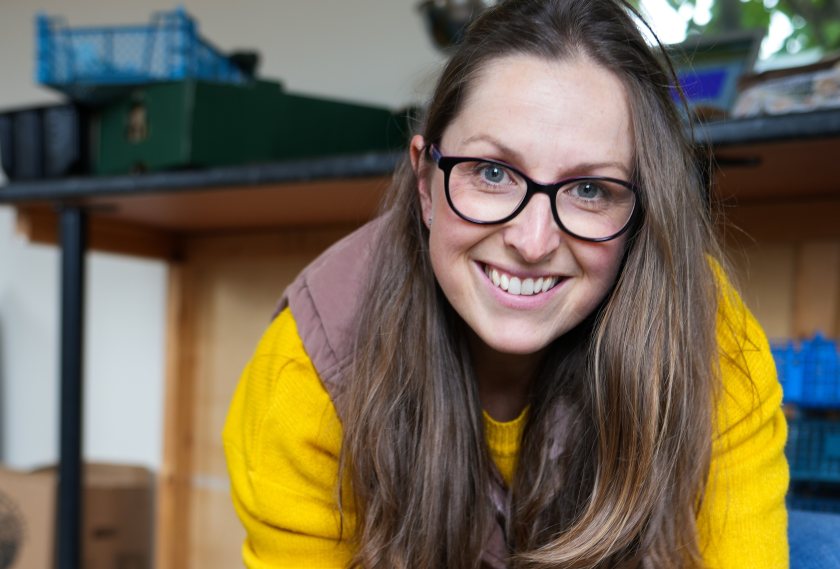
A Herefordshire farming entrepreneur has turned her pandemic lockdown gardening hobby into a new home-based vegetable box delivery business.
Setting up a new business growing, supplying and delivering boxes of fresh local produce has been a fast but rewarding learning curve for Sarah Evans.
She runs Watery Lane Produce, a small nursery and boxed veg delivery business based at the 500-acre family arable and beef farm in Eyton.
The seeds for her new veg box enterprise were first sown when Sarah was inspired by a television programme about the growing number of small-scale growers tapping into the demands of shoppers keen to buy locally grown produce.
“The pandemic and its restrictions changed the way a lot of people live their lives, and for many, that included the way they shop," Sarah says.
“My customer base, which includes three small retail businesses, all buy into the concept of online ordering for weekly deliveries of local organically-grown produce.
"Not only does it taste better, it’s such an important factor in terms of minimising our carbon footprint."
Before Sarah and her husband Will had even identified a suitable growing plot to start her new venture, she settled on a third of an acre of flat ground close to the farmhouse.
She then started to research the options for setting up a new enterprise. Her priorities were to grow as much as she could herself using a mix of conventional and ‘no dig’ systems.
She also wanted to widen the range of produce she could box up and deliver through approaching other local organic producers.
Sarah explained: “I turned to Farming Connect before I dug my first row, so I’m very grateful that I was able to receive expert advice before I made too many time-consuming costly mistakes.
“It was organised online because of the pandemic restrictions, and it was a fantastic opportunity to ask questions from a rural diversification specialist.
“I came away with a checklist of all the issues that I needed to consider, from what initial costs I should expect – surprisingly few, at the outset – and how was I going to target new customers and build a website and online presence, to the scale of the enterprise I could aim for.”
Sarah was invited to join a ‘horticulture’ Farming Connect Agrisgôp group, facilitated by leader Gwen Davies, who had assembled a group of would-be growers from across Wales.
With most of the meetings held online, Sarah says that the support of other members, as well as the many experts and producers Gwen introduced to the group, was of enormous benefit.
“I made very valuable contacts through Gwen’s group, and many of us who are now running successful diversified horti-enterprises are still in touch regularly.
“It was a huge help to share experiences and advice, and also visit like-minded individuals wanting to set up or expand home-grown produce ventures.
“Gwen brought in speakers who covered areas such as setting up social media channels and online-ordering. There was plenty of advice on where to buy my first polytunnel and source the small second-hand portacabin which I now use for weighing and packing.”
Philip Handley, an experienced horticulturalist who runs a commercial kitchen garden in North Wales, also provided Sarah business advice.
With his guidance, Sarah now concentrates on seasonal leafy greens, summer staples such as tomatoes, cucumbers and courgettes as well as peas, beans and a small range of root vegetables.
And says she buys in any items she doesn’t produce herself from other local growers to widen her range.
“Philip is incredibly knowledgeable and was so supportive, inviting me to visit his garden and advising me on what I could aim for, and how to overcome weather issues," Sarah says.
“With Philip’s mentoring guidance, I’ve ensured I have no reliance on plastic packaging, minimal waste, and I recycle everything I can.
“I’ve taken his advice on irrigation, and planted according to seasonal demand, with a pricing structure that keeps me competitive with organic produce available in supermarkets.”
Although life is now back to normal post-pandemic, Sarah says that her expanding customer base shows no signs of giving up on their weekly deliveries of fresh organically-grown produce.
“I’ve found a job I feel passionate about, I’m doing my bit for the environment and climate change, and I’m also educating my four children on all these important issues.”
